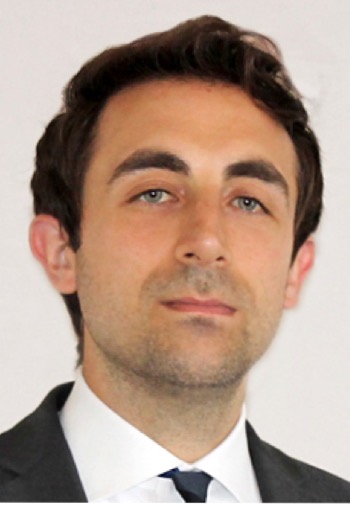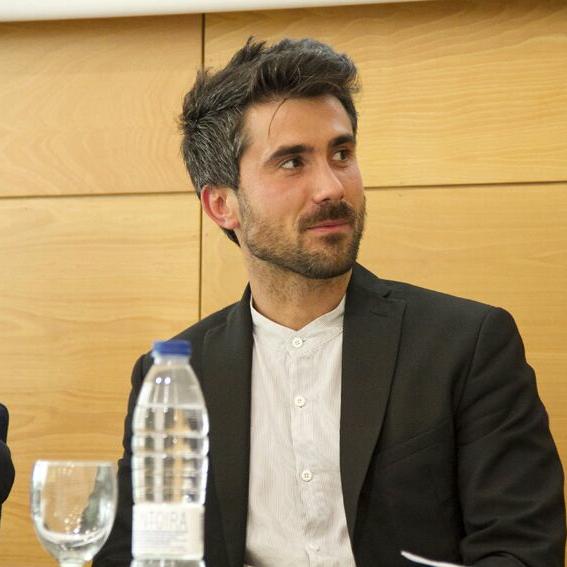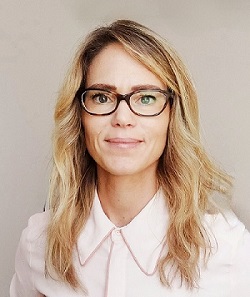Studying at the University of Verona
Here you can find information on the organisational aspects of the Programme, lecture timetables, learning activities and useful contact details for your time at the University, from enrolment to graduation.
Academic calendar
The academic calendar shows the deadlines and scheduled events that are relevant to students, teaching and technical-administrative staff of the University. Public holidays and University closures are also indicated. The academic year normally begins on 1 October each year and ends on 30 September of the following year.
Course calendar
The Academic Calendar sets out the degree programme lecture and exam timetables, as well as the relevant university closure dates..
| Period | From | To |
|---|---|---|
| 1° periodo lezioni (1A) | Sep 15, 2022 | Oct 27, 2022 |
| 1° periodo lezioni (1B) | Nov 4, 2022 | Dec 16, 2022 |
| 2° periodo lezioni (2A) | Feb 13, 2023 | Mar 25, 2023 |
| 2° periodo lezioni (2B) | Apr 3, 2023 | May 23, 2023 |
| Session | From | To |
|---|---|---|
| Prove parziali 9/12 CFU - Prove finali 6 CFU del periodo 1A | Oct 28, 2022 | Nov 3, 2022 |
| 1° appello invernale - dicembre 2022 | Dec 17, 2022 | Dec 23, 2022 |
| Sessione invernale - 2 appelli | Jan 9, 2023 | Feb 11, 2023 |
| Prove parziali 9/12 CFU - Prove finali 6 CFU del periodo 2A | Mar 27, 2023 | Apr 1, 2023 |
| Appello riservato a studenti fuori corso | Mar 27, 2023 | Apr 1, 2023 |
| Sessione estiva - 3 appelli | May 24, 2023 | Jul 26, 2023 |
| Sessione autunnale - 1 appello | Aug 24, 2023 | Sep 16, 2023 |
| Session | From | To |
|---|---|---|
| Sessione estiva - giugno 2023 | Jun 22, 2023 | Jun 24, 2023 |
| Period | From | To |
|---|---|---|
| Tutti i Santi | Nov 1, 2022 | Nov 1, 2022 |
| Festa dell’Immacolata | Dec 8, 2022 | Dec 8, 2022 |
| Vacanze natalizie | Dec 23, 2022 | Jan 8, 2023 |
| Vacanze di Pasqua | Apr 7, 2023 | Apr 10, 2023 |
| Festa della Liberazione | Apr 25, 2023 | Apr 25, 2023 |
| Festa del lavoro | May 1, 2023 | May 1, 2023 |
| Festività Santo Patrono | May 21, 2023 | May 21, 2023 |
| Festa della Repubblica | Jun 2, 2023 | Jun 2, 2023 |
Exam calendar
Exam dates and rounds are managed by the relevant Law Teaching and Student Services Unit.
To view all the exam sessions available, please use the Exam dashboard on ESSE3.
If you forgot your login details or have problems logging in, please contact the relevant IT HelpDesk, or check the login details recovery web page.
Should you have any doubts or questions, please check the Enrollment FAQs
Academic staff
 bernardo.calabrese@univr.it
bernardo.calabrese@univr.it
 mila.dallapreda@univr.it
mila.dallapreda@univr.it
 roberto.flor@univr.it
roberto.flor@univr.it
 stefano.gatti@univr.it
stefano.gatti@univr.it
 mariangela.massella@univr.it
mariangela.massella@univr.it
 cinzia.peraro@univr.it
cinzia.peraro@univr.it
 pietro.schiro@univr.it
pietro.schiro@univr.it
 diego.tilola@univr.it
diego.tilola@univr.it
Study Plan
The Study Plan includes all modules, teaching and learning activities that each student will need to undertake during their time at the University.
Please select your Study Plan based on your enrollment year.
1° Year
| Modules | Credits | TAF | SSD |
|---|
2° Year activated in the A.Y. 2023/2024
| Modules | Credits | TAF | SSD |
|---|
6 modules among the following| Modules | Credits | TAF | SSD |
|---|
| Modules | Credits | TAF | SSD |
|---|
6 modules among the following| Modules | Credits | TAF | SSD |
|---|
Legend | Type of training activity (TTA)
TAF (Type of Educational Activity) All courses and activities are classified into different types of educational activities, indicated by a letter.
History of law and cultural heritage (2023/2024)
Teaching code
4S009822
Teacher
Coordinator
Credits
6
Language
English
Scientific Disciplinary Sector (SSD)
IUS/19 - HISTORY OF MEDIEVAL AND MODERN LAW
Period
2° periodo lezioni (2B) dal Apr 3, 2024 al May 23, 2024.
Courses Single
Authorized
Learning objectives
The course is included in the learning area on Food, fashion and cultural heritage. The course illustrates the emergence of the need, which has existed since the modern age, to identify and protect a set of tangible and intangible assets in which the civil community recognises a founding and central element of its cultural identity, a plurality of cultural elements belonging to the common tradition of a people and of which the law itself is an integral part. Taking into consideration a broad historical period, ranging from the recovery of the various traditions of numerous Italian cities, carried out for example by Muratori in the 18th century, to the contemporary movements claiming the original cultural heritage of the natives of America or Australia. The role of the law will be highlighted and the ways in which it has hindered or favoured the development of these cultural legacies, and above all, the salient stages of the evolution of Italian and international legislation and case-law on these issues will be studied, with a focus on the constitutional principles involved in the affirmation of ancient traditions.
By the end of the course, students will have acquired basic fundamental knowledge about the emergence of the concept of cultural heritage, its progressive spread and the ways and forms through which law has contributed to this historical evolution.
Students will also acquire the ability to use the historical knowledge they have acquired to face and solve practical problems typical of the professional context in which they will operate. Students will also be able to verify the practical consequences of the theoretical framework and to set, in written and oral form (and also through group work, written exercises and the method of Problem Based Solving - PBS), the solution to concrete issues, using the appropriate and specific disciplinary vocabulary, adopting the correct lines of reasoning and argumentation, and formulating autonomous judgments. The teaching method used is functional to the continuous learning and updating of acquired knowledge.
Prerequisites and basic notions
To successfully attend the course, the student should possess the basics of public law (with particular regard to constitutional law) and an adequate historical perspective (with particular regard to modern and contemporary history). The fundamental concepts will however be resumed during the course.
Program
1. Law and Cultural Heritage: difficult definitions.
2. The value of cultural property and its protection. (Legal systems compared: Europe, Africa, Asia. The Effects of Colonialism on Cultural Heritage).
3. Art in modern constitutionalism.
4. Collecting, showing, protecting. The birth of museums and legislation for protection.
5. The protection of cultural heritage during the revolutions.
6. The Restaurazione (Pre-unification Italian legislation, hints at European legislation in the early 19th century. Antonio Canova and the Restoration. Art as an instrument of power).
7. Law as Cultural Heritage.
8. The Unification of Italy.
9. The advent of positivism. Cultural Heritage between the two centuries
10. Cultural Heritage and War.
11. Fascism and the identity of the Italians.
12. The Dark Side of Cultural Heritage: National Identity as a Factor of Exclusion (Nationalisms in Europe; from the Race Manifesto to the Racial Laws).
13. The Italian Constitution and the protection of cultural heritage.
14. The work of UNESCO.
15. European Institutions and Cultural Heritage.
16. Cultural Heritage a Historical Comparison. Understanding Conflicts: Russia and Ukraine; Israel and Palestine.
Readings
Students attending the lectures will have to study their lecture notes and the reading materials that will be given during the Course.
Bibliography
Didactic methods
The teacher will use: a) frontal lessons, in chronological order; b) thematic insights on topics of particular historical-legal interest: students will be presented with case studies to be analyzed individually or in groups and then discussed in the classroom, in order to stimulate their research, reflection, comparison and exposition skills. For students with disabilities or specific learning disorders (DSA), written handouts will be distributed and, upon request, lessons will be video recorded.
Learning assessment procedures
The exam will take place through an oral question of about 20 minutes, dealing with the topics of the course. The modalities of the test will not differ between attending and non-attending students and between students enrolled at the University of Verona and Erasmus students. There are no intermediate tests. For students with disabilities or specific learning disabilities (SLD) it is possible to use the handouts previously distributed during the exam. Students with Covid can agree on the use of the telematic method with the teacher.
Evaluation criteria
Knowledge of the fundamentals; level of detail; critical reasoning skills; quality of exposure; mastery of a specialized vocabulary. The vote will be expressed out of thirty.
Criteria for the composition of the final grade
The exam is not divided into modules, so the entire grade depends on the final exam.
Exam language
English / Italiano
Type D and Type F activities
Le attività che consentono l’acquisizione dei crediti riservati alle attività formative a libera scelta dello studente (TAF D) sono le seguenti:
- Un insegnamento previsto nell’elenco delle attività formative (TAF D) allegato al piano didattico del corso di laurea in Diritto per le tecnologie e l’innovazione sostenibile;
- Un insegnamento attivato nei Corsi di studi afferenti al Collegio didattico;
- Un laboratorio didattico attivato nei Corsi di studi afferenti al Collegio didattico;
- Un laboratorio didattico attivato nei Corsi di studi afferenti al Dipartimento di Scienze Giuridiche;
- Un insegnamento previsto dall’Offerta Formativa di Ateneo, non impartito nell’ambito dei corsi di studi afferenti al Collegio didattico: il riconoscimento dei crediti acquisiti sarà subordinato alla preventiva presentazione di coerenti programmi formativi valutati dalla Commissione istruttoria per la didattica e approvati dal Collegio didattico.
- Attività formative organizzate dai singoli docenti del Collegio didattico o del Dipartimento di Scienze Giuridiche: previa approvazione del Collegio ad esse verrà attribuito, dopo un’apposita verifica, un credito per ogni 6 ore di frequenza obbligatoria;
- Attività formative che implicano la partecipazione a convegni o seminari organizzati sotto il “logo” del Dipartimento di Scienze Giuridiche o dell’Ateneo: devono essere preventivamente approvate dal Collegio didattico indicando un docente di riferimento del Collegio didattico ovvero del Dipartimento di Scienze Giuridiche. Un credito per ogni giornata di convegno o di seminario si acquisisce dopo apposita verifica che dimostri l’avvenuta fruizione culturale del tema del convegno o del seminario.
Le attività che consentono l’acquisizione dei crediti riservati alle ulteriori attività formative (TAF F) sono le seguenti:
• Ulteriori competenze linguistiche (3 CFU);
• Stage;
• Un laboratorio didattico attivato nei Corsi di studi afferenti al Collegio didattico;
• Un laboratorio didattico attivato nei Corsi di studi afferenti al Dipartimento di Scienze Giuridiche.
Al link Compilazione del piano didattico - Giurisprudenza le informazioni e la modulistica per l'inserimento di attività non selezionabili in autonomia dallo studente in sede di compilazione del piano degli studi.
| years | Modules | TAF | Teacher |
|---|---|---|---|
| 1° 2° | CONFLICT. RECOGNIZE, PREVENT, MANAGE | D |
Annalisa Ciampi
(Coordinator)
|
| 1° 2° | Conflict. Recognize, prevent, manage | D |
Annalisa Ciampi
(Coordinator)
|
| 1° 2° | Conflict. Recognize, prevent, manage | D |
Annalisa Ciampi
(Coordinator)
|
| 1° 2° | Building a green and sustainable Europe | D |
Caterina Fratea
(Coordinator)
|
| 1° 2° | Landscape and law in the Veneto region. A course of lectures | D |
Matteo Nicolini
(Coordinator)
|
| 1° 2° | Lab.: Laboratorio di tecnica di redazione dei contratti | D |
Andrea Caprara
(Coordinator)
|
| 1° 2° | The fashion lab (2 ECTS) | D |
Caterina Fratea
(Coordinator)
|
| years | Modules | TAF | Teacher |
|---|---|---|---|
| 1° 2° | An introduction to Project Management | D |
Matteo Nicolini
(Coordinator)
|
| 1° 2° | Infrastrutture, logistica e industria: strategie ed azioni nella nuova globalizzazione | D |
Matteo Nicolini
(Coordinator)
|
| years | Modules | TAF | Teacher |
|---|---|---|---|
| 1° 2° | CONFLICT. RECOGNIZE, PREVENT, MANAGE | D |
Annalisa Ciampi
(Coordinator)
|
| 1° 2° | Conflict. Recognize, prevent, manage | D |
Annalisa Ciampi
(Coordinator)
|
| 1° 2° | Conflict. Recognize, prevent, manage | D |
Annalisa Ciampi
(Coordinator)
|
| 1° 2° | Building a green and sustainable Europe | D |
Caterina Fratea
(Coordinator)
|
| 1° 2° | Future's Festival | D |
Francesca Ragno
(Coordinator)
|
| 1° 2° | Lab.: Laboratorio di tecnica di redazione dei contratti | D |
Andrea Caprara
(Coordinator)
|
| 1° 2° | Laboratori strumenti apprendimento DSA | D |
Fabio Ferrari
(Coordinator)
|
| 1° 2° | The fashion lab (2 ECTS) | D |
Caterina Fratea
(Coordinator)
|
| 1° 2° | Tai-Ti aiuto io | F |
Alessandra Cordiano
(Coordinator)
|
| years | Modules | TAF | Teacher |
|---|---|---|---|
| 1° 2° | Lab.: Laboratorio di tecnica di redazione dei contratti | D |
Andrea Caprara
(Coordinator)
|
| 1° 2° | The fashion lab (2 ECTS) | D |
Caterina Fratea
(Coordinator)
|
| years | Modules | TAF | Teacher | |
|---|---|---|---|---|
| 1° | Legal English B2 | F |
Francesca Ragno
|
|
| 1° 2° | Lab.: Laboratorio di tecnica di redazione dei contratti | D |
Andrea Caprara
(Coordinator)
|
|
| 1° 2° | The fashion lab (2 ECTS) | D |
Caterina Fratea
(Coordinator)
|
|
Career prospects
Module/Programme news
News for students
There you will find information, resources and services useful during your time at the University (Student’s exam record, your study plan on ESSE3, Distance Learning courses, university email account, office forms, administrative procedures, etc.). You can log into MyUnivr with your GIA login details: only in this way will you be able to receive notification of all the notices from your teachers and your secretariat via email and soon also via the Univr app.
Internships
Internships are aimed at enabling students to gain direct knowledge of the world of work and to acquire specific professional skills.
Internships are carried out under the responsibility of an individual lecturer, and can be carried out in professional firms, public administration bodies and companies recognised by the University of Verona.
Any CFU credits gained by doing internships will be recognised and recorded by the University in accordance with the relevant University regulations in force (Regolamento d’Ateneo per il riconoscimento dei crediti maturati negli stage universitari).
For further information on internships, please go to: https://www.univr.it/it/i-nostri-servizi/stage-e-tirocini.

 +39 045 802 8549
+39 045 802 8549


































